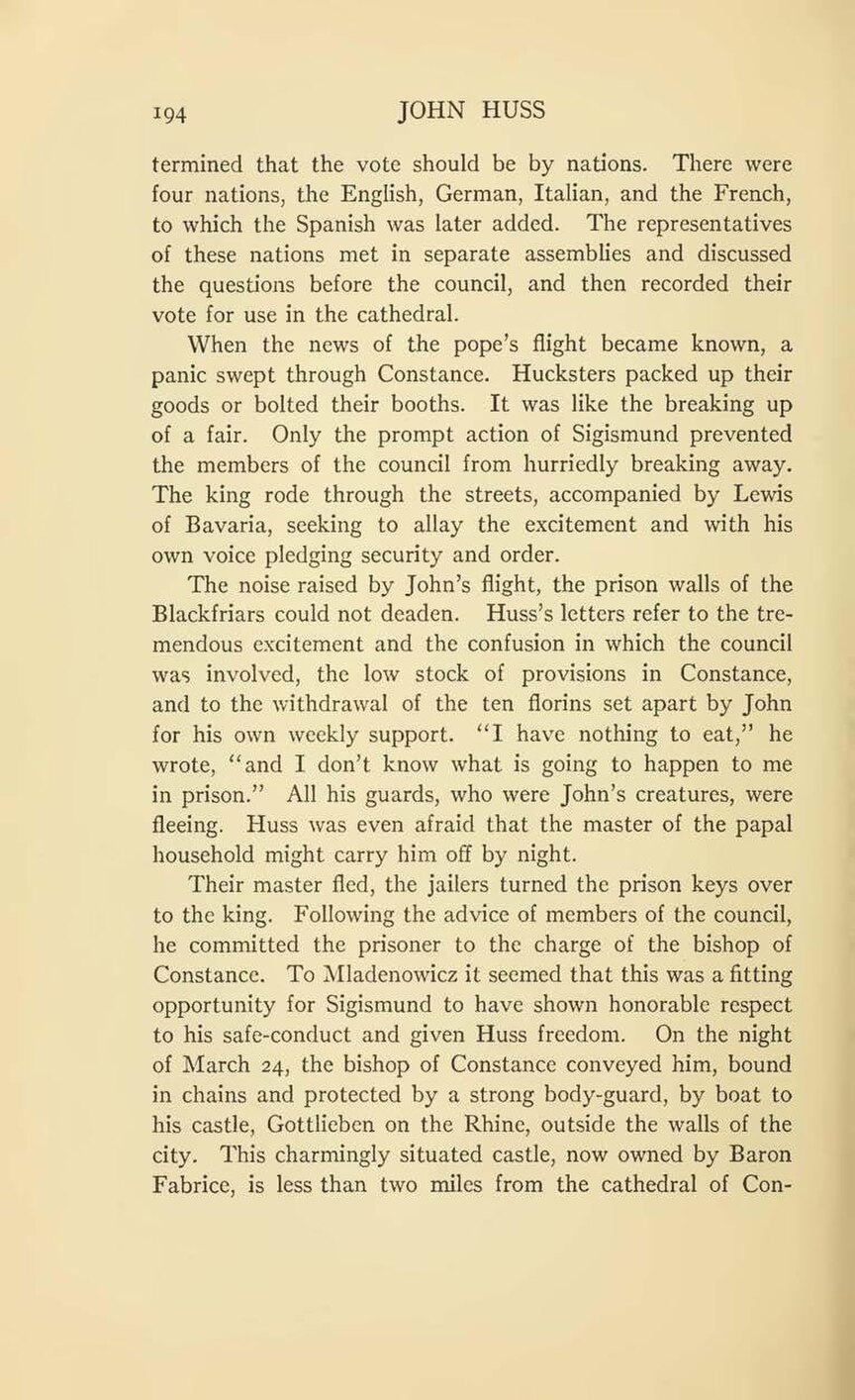termined that the vote should be by nations. There were four nations, the English, German, Italian, and the French, to which the Spanish was later added. The representatives of these nations met in separate assemblies and discussed the questions before the council, and then recorded their vote for use in the cathedral.
When the news of the pope’s flight became known, a panic swept through Constance. Hucksters packed up their goods or bolted their booths. It was like the breaking up of a fair. Only the prompt action of Sigismund prevented the members of the council from hurriedly breaking away. The king rode through the streets, accompanied by Lewis of Bavaria, seeking to allay the excitement and with his own voice pledging security and order.
The noise raised by John’s flight, the prison walls of the Blackfriars could not deaden. Huss’s letters refer to the tremendous excitement and the confusion in which the council was involved, the low stock of provisions in Constance, and to the withdrawal of the ten florins set apart by John for his own weekly support. “I have nothing to eat,” he wrote, “and I don’t know what is going to happen to me in prison.” All his guards, who were John’s creatures, were fleeing. Huss was even afraid that the master of the papal household might carry him off by night.
Their master fled, the jailers turned the prison keys over to the king. Following the advice of members of the council, he committed the prisoner to the charge of the bishop of Constance. To Mladenowicz it seemed that this was a fitting opportunity for Sigismund to have shown honorable respect to his safe-conduct and given Huss freedom. On the night of March 24, the bishop of Constance conveyed him, bound in chains and protected by a strong body-guard, by boat to his castle, Gottlieben on the Rhine, outside the walls of the city. This charmingly situated castle, now owned by Baron Fabrice, is less than two miles from the cathedral of Con-
